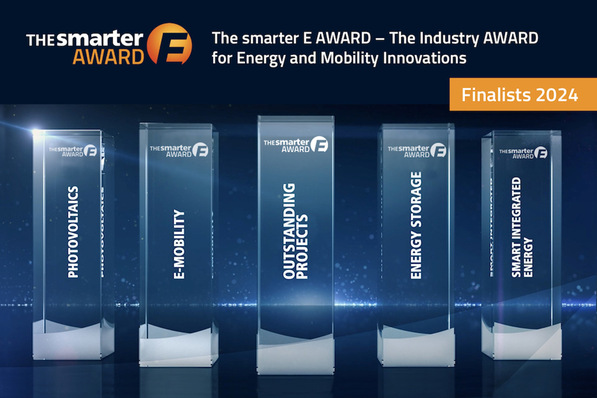In addition to panels for smart lighting solutions and traffic sensors, the company supplies integrated solar technology for maritime safety ladders made by the Danish manufacturer Port-Safety. The patented LifeLadder is an innovative safety feature for quay walls and is currently installed in the industrial ports, city wharfs, and marinas of more than 22 countries worldwide. The ladders make harbour fronts safer by addressing two major issues: visibility and maintenance. Made of reinforced synthetic modules, the ladders are non-corrosive, maintenance-free and have already proven their worth in harsh maritime environments.
LifeLadder’s bright-yellow modules make them highly visible in the daytime, while solar-powered LED lights illuminate them at night and thus provide a clear “signpost” to safety. Mostly unlit, traditional quay wall ladders are barely visible at night and difficult to find in an emergency. The LED lighting significantly increases LifeLadder’s safety performance, even during normal operation.
Solar energy supply even in the far north
“The LifeLadder is a good example of how solar power creates new possibilities in products and applications that were previously hardly feasible,” says Robert Händel, CEO of OPES Solutions. “Connecting individual safety ladders to the power grid can be complex. With the help of our highly efficient off-grid solar panels and the integrated battery, however, Port-Safety’s ladders remain reliably and consistently visible all year round even without a grid connection and at latitudes of up to 60°N,” Händel adds. The 60° latitude runs north of Oslo and Stockholm.
Did you know?
OPES Solutions now use lead-free solder for their PV modules
Integrated solar panels from OPES Solutions with an output of 4.3 watts are equipped with 3.2 millimetre tempered glass on the front, while the back consists of 2.5 millimetre float glass, making them tough enough to step on. An inner layer of EVA provides the desired black colouring.
PV facilitates smart safety and sensor solutions
“When dealing with safety equipment, quality is crucial. And we are very pleased with the products supplied by OPES Solutions,” says Lars Techt Myrhøj, Operations Director & Founder at Port-Safety.
The possibilities for the application of solar technology in safety-related fields go far beyond the supply of lighting solutions, as OPES Solutions’ customer projects show: In parallel with the increasing development of Smart Cities goes the demand for sensor solutions for the collection of safety-related traffic data. This includes, for example, traffic density measurements and the analysis of traffic turning at intersections as a means of optimising traffic lights. The decentralised installation of these sensors can make the specific power supply required for individual sensors both complex and expensive. This is where photovoltaics comes into its own: “Today’s sensors have only a low power requirement, which modern PV panels can easily cover. Without off-grid solar modules, regular maintenance is necessary to replace batteries. This increases the cost, which is why, in most cases, solar energy in combination with rechargeable batteries is the most economical and sustainable option,” Händel adds. (mfo)







